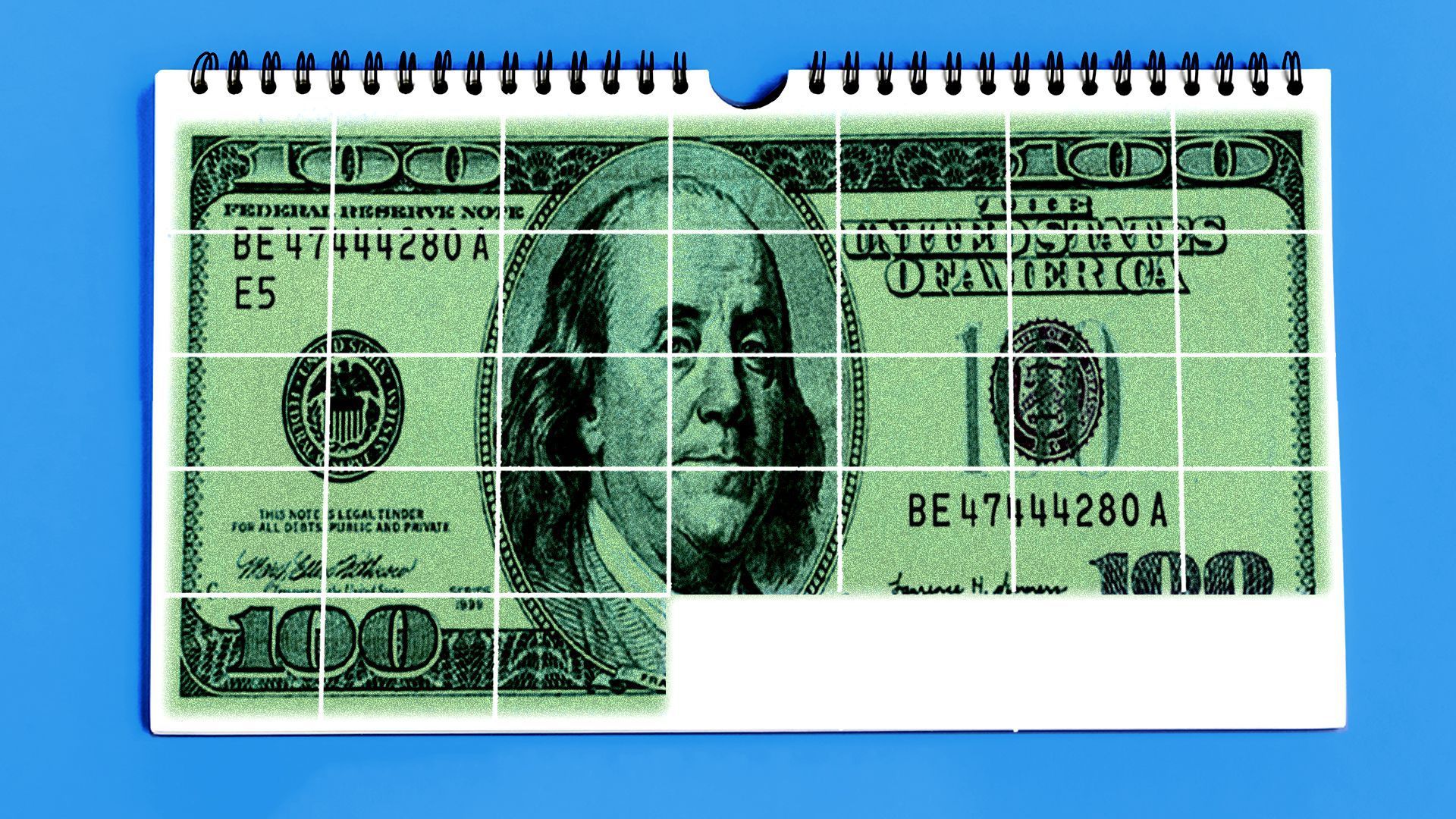Silicon Valley stirs over proposal to end popular tax break
Add Axios as your preferred source to
see more of our stories on Google.

Illustration: Annelise Capossela/Axios
Silicon Valley lawyers and wealth managers had their switchboards melt down yesterday, as word spread that House Democrats have proposed to retroactively end the tax break for qualified small business stock (QSBS).
Why it matters: Many startup founders and early employees have made major financial decisions based on the QSBS tax exemption, which has been at 100% since 2009.
- The new proposal would revert the QSBS tax exemption to 50% for those earning more than $400,000, effective for all sales taking place at or after Sept. 13, 2021.
For example: Imagine you're an early Warby Parker employee who got QSBS-treated options when the company raised early funding in 2010 or 2011. You had planned to sell stock later this month via the direct listing, and had banked on the 100% tax exemption. Maybe you recently bought a house based on your understanding of the 2021 tax rates and the direct listing timing.
- If this tax proposal becomes law, you'll be on the hook for capital gains taxes (most likely 20%).
- And if you sell your stock next year instead, the rate would rise to 25% (also based on the House Dems plan).
Inside the numbers: Aumni, a provider of private capital data, reports that QSBS reps and covenants are present in over half of all seed-stage and Series A deals, and in over 40% of Series B deals.
- "I don't object to the idea of removing the tax exemption going forward, but a lot of people planned around this who aren't being grandfathered in," says venture capitalist Mike Dauber, who adds that it also could discourage the formation of emerging VC funds.
Caveat: This proposal isn't close to a done deal. Not just the tax details, including changes to corporate rates and carried interest, but the entire "Build America Back Better" legislation that it's designed to help pay for.
- In the meantime, those with liquid QSBS securities are in a pickle. They could sell now, hoping that lobbyists get the deadline pushed out to Dec. 31. Or they could hold, hoping the whole thing gets scrapped.
- There's a similar dilemma for those on both sides of new VC funding rounds.
The bottom line: The only thing that's certain when it comes to federal tax policy is uncertainty.
